See inside Kimberly-Clark's Flushability Lab, where scientists test what can go down toilet
NEENAH, Wisc. – Have you ever flushed baby wipes down your toilet? How about paper towels? Disinfectant wipes? Maybe some tampons or pads?
Well, don't.
Those items aren't designed to be flushed, and they can wreak havoc not only in the pipes in your home but in your city's sewer and wastewater treatment systems.
David Powling, Pete Lortscher and Doris Palfery would know. Collectively, they have spent decades working in Kimberly-Clark's Flushability Lab in Neenah, Wisconsin, studying how different products do – and don't – break down after being flushed.
Last week, they welcomed a group of more than a dozen plumbing students from Fox Valley Technical College to see the work that they do.
The goal is to make the lab as "realistic" as possible, said Powling, the company's North American engineering technical leader. Located in the Kimberly-Clark Prototype and Experimental facility, the lab is equipped with multiple working toilets from places all around the globe, including the United Kingdom and Australia, that send materials through clear pipes for scientists to monitor. They also have stations that mimic sewer systems, septic tanks and different types of pumps found in residential homes and municipal wastewater systems.
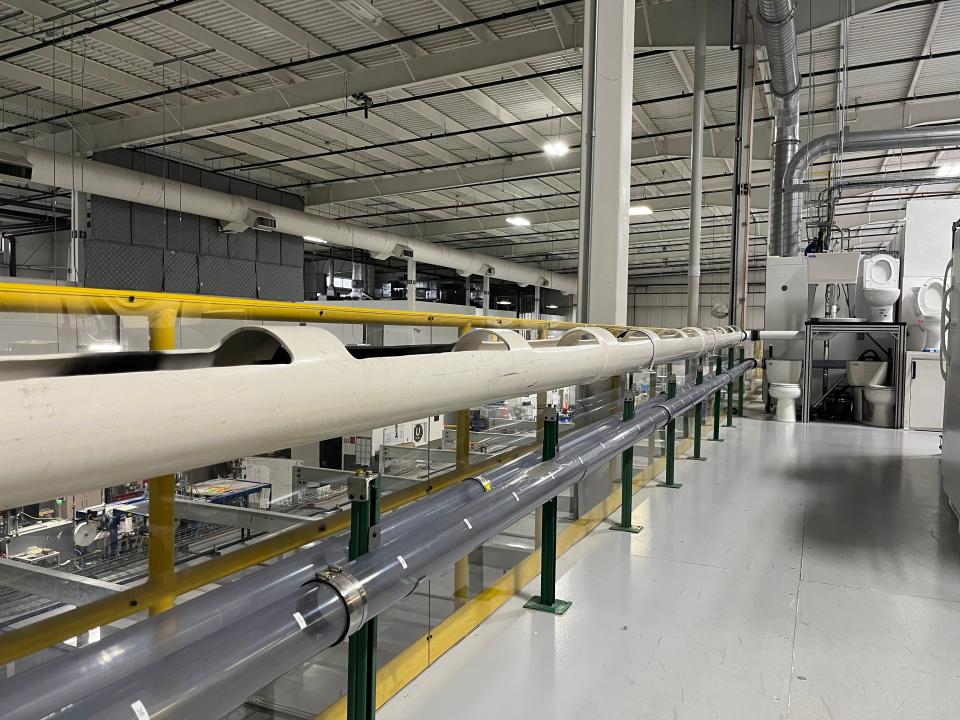
The employees at the lab have even figured out a way to factor bowel movements into their studies. They use a substance made of wet dog food mixed with gelatin, which is flushed along with folded squares of toilet paper.
In general, people seem to have a lot of confusion about what can and can't be flushed, Powling said. As a rule of thumb, Jeff Kolb, a plumbing apprentice, said he tells customers to assume that most items can't go down the toilet.
By coming to the lab, though, plumbers not only learn about the different kinds of tissue products they may find when clearing out drain lines, but they can then also educate their customers about what is and isn't flushable, according to Greg Van Lanen, the instructor of the Fox Valley plumbing service and repair class.
In a way, Van Lanen said, plumbers serve as the "front line" for this education, to prevent the future messes and clogs that the team at the Flushability Lab is working to fix.
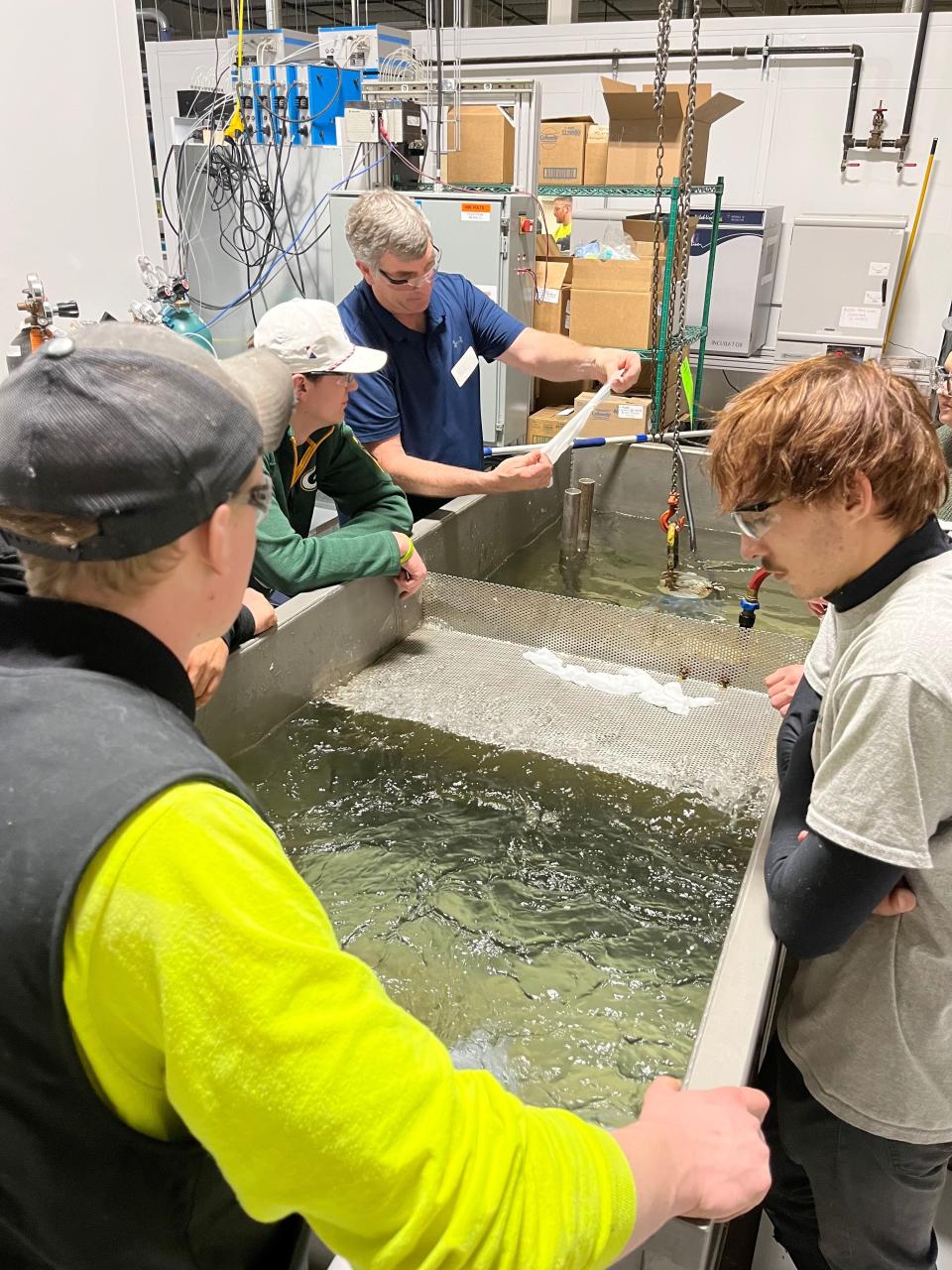
Flushable wipes: To flush or not to flush?
There are often stories in the media, Powling said, about large "fatbergs" made of nonbiodegradable waste clumped with fat and grease that clog up sewer systems across the U.S. and around the globe. In these stories, city officials often encourage residents not to flush wipes down their toilets.
In 2021, South Carolina's Charleston Water System sued Kimberly-Clark and other companies that market and sell flushable wipes, arguing the businesses' products were "false and misleading" and caused problems in sewer and wastewater systems.
While the civil case continues against other companies, Kimberly-Clark and the Charleston Water System reached a settlement. Kimberly-Clark agreed to ensure its flushable wipes met industry standards and specifications, and Charleston announced that Cottonelle Flushable Wipes – made by Kimberly-Clark – were "the only wipes safe for our sewer system."
Before that, Kimberly-Clark also worked on a study with the water and sewer utility in Jacksonville, Florida. In 2019, the general manager of the Jacksonville utility said that Kimberly-Clark's flushable wipe "does what it says it does."
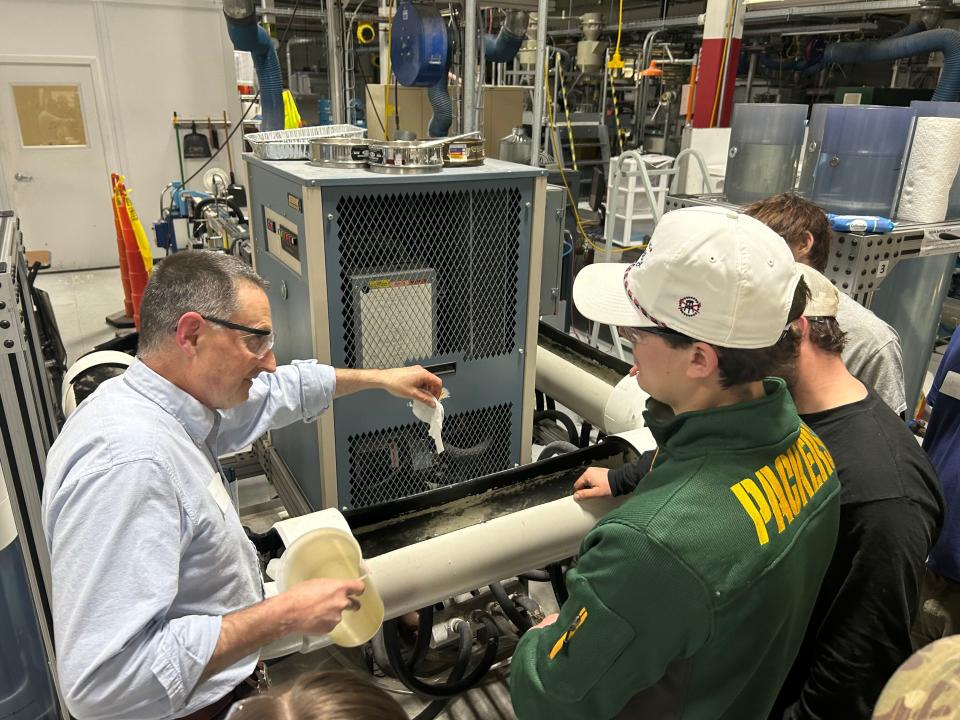
Customers, plumbers and people working with wastewater systems come from all over to visit Neenah's Flushability Lab. When they do, Powling said he likes to let them discover for themselves how Kimberly-Clark's wipes work.
On Jan. 25, Powling set up a simple demonstration for the Fox Valley students. They placed a baby wipe in one bowl of water, a Cottonelle Flushable Wipe in another and a few squares of toilet paper in a third. After soaking for a while, the baby wipe remained intact, and it didn't rip when the students pulled on it.
Baby wipes are designed to be thrown away, not flushed, Powling explained, so they can "get wrapped up real quick" in plumbing and sewer systems, causing problems.
A Cottonelle Flushable Wipe, meanwhile, is made of materials that break down after being flushed. There's a salt solution around the binder in the wipe that gets rinsed off in water, said Lortscher, the manager of the Flushability Lab. So, when the plumbing students picked up the Cottonelle Flushable Wipe, it tore apart almost as easily as the toilet paper. And when the wipe goes through the tests in the lab, it falls apart "like butter," Lortscher said.
More:Kimberly-Clark offers rare glimpse inside Neenah X-Mill, where new products are created
Check for labels to see what can go down the toilet
Walking through the Flushability Lab, the Fox Valley students saw the multiple tests Kimberly-Clark conducts on its products to make sure they are meeting industry standards. One test examined whether the product would sink or float. In another, the wipe was placed in a slosh box, where water moved it back and forth for a while, before Doris Palfery, a senior lab technician, poured it through a sieve to see how much of the wipe was left.
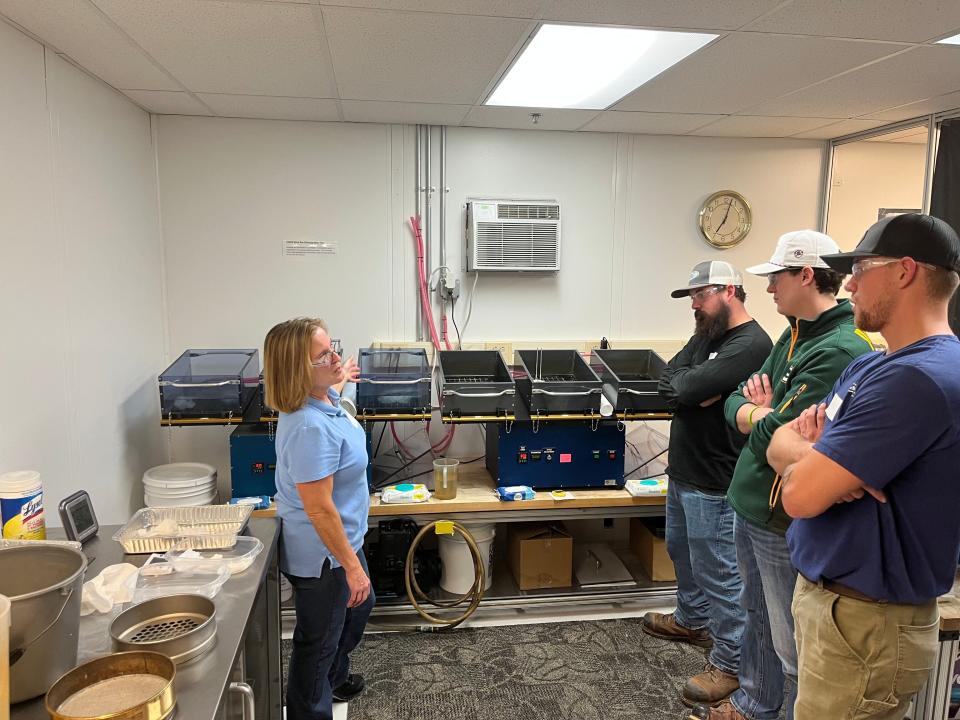
Because Kimberly-Clark's Cottonelle Flushable Wipe passed all these tests, it has an International Water Services Flushability Group seal on the back of its packaging, showing it can be flushed.
A package of Huggies baby wipes, which are also made by Kimberly-Clark, does not have that label. Instead, the wording on the Huggies packaging tells customers "do not flush."
These kinds of labels can help educate people, Powling said, and prevent plumbing problems. A few states, including Illinois, have passed laws requiring clear "do not flush" labels on wipes that are not flushable.
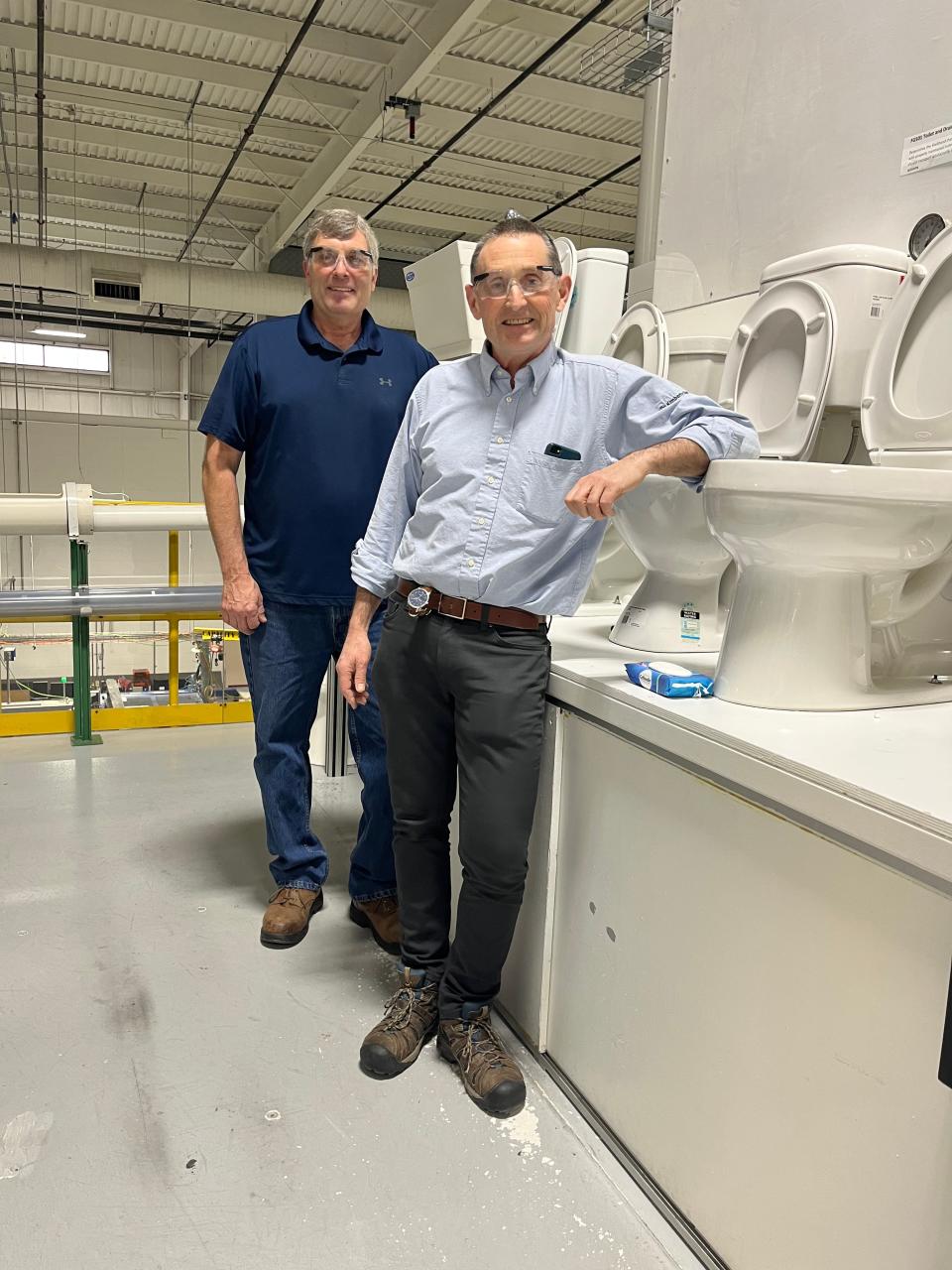
There's more education that needs to be done, Lortscher said. In his experience, you can find just about "everything" in sewer systems, from money to cellphones to underwear. During the COVID-19 pandemic, people continued to flush things they shouldn't, he said, as they struggled to buy toilet paper and other tissue products.
Lortscher estimates that his team has done "hundreds of thousands of flushing trials" in the Neenah lab. And they will keep working to improve and test new products, he said.
The more people learn about what can and can't go down the toilet, the more it will "make life easier for everybody," Lortscher said, from residents to plumbers to wastewater professionals and the employees at the Flushability Lab.
Reach Becky Jacobs at bjacobs@gannett.com or 920-993-7117. Follow her on Twitter at @ruthyjacobs.
This article originally appeared on USA TODAY: Kimberly-Clark tests wipes, toilet paper in Neenah Flushability Lab

 Yahoo Movies
Yahoo Movies 